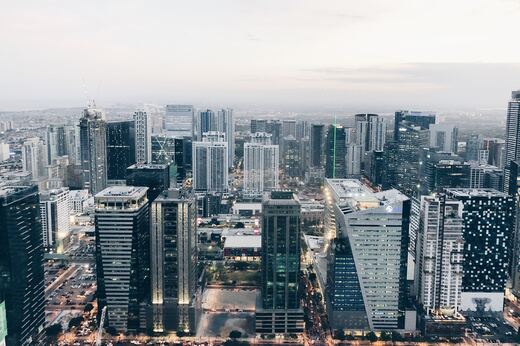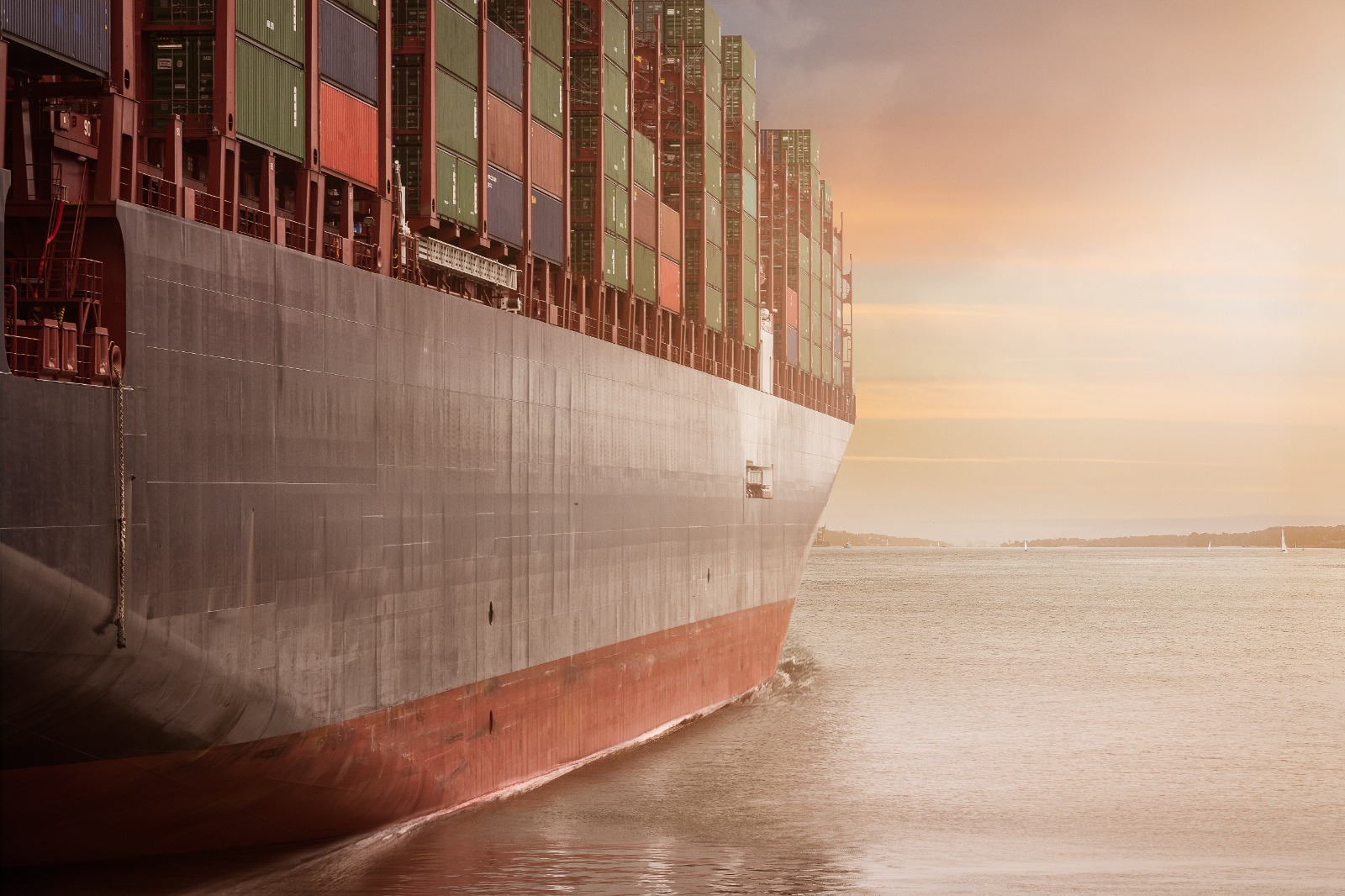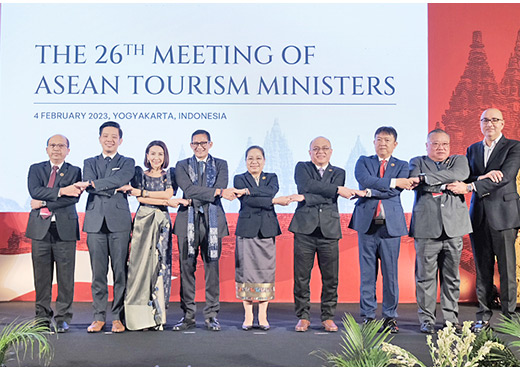Finance Minister Arkhom Termpittayapaisith has projected that Thailand’s economy will grow by 3.8% in 2023, with the rebound of the vital tourism sector contributing to the growth.
Speaking on a Radio Thailand program, Minister Arkhom said the increase in domestic spending and an acceleration in investment in large projects would further boost growth.
According to the finance minister, tourism in particular is expected to play a crucial role in the country’s economic recovery. The country is now projected to receive 27.5 million foreign visitors this year, following the arrival of 11.15 million visitors last year. This figure, while promising, is still below the nearly 40 million foreign visitors the country had in 2019 before the pandemic.
The minister earlier said the nation’s economic growth could exceed the current forecast with the expected return of Chinese tourists. However, he cautioned against aggressive interest rate hikes, which could lead to increased business costs and household debt.
The country’s headline inflation is further expected to fall within the central bank’s target range of 1% to 3% this year, owing to government measures and lower food prices. He noted, however, that despite the fall in export volumes, an exchange rate of 34 to 35 Thai baht per US dollar, as recorded last week, would be beneficial for export prices.
Source : NATIONAL NEWS BUREAU OF THAILAND
The government has approved the Indo-Pacific Economic Framework (IPEF) to serve as a foundation for the Bio-Circular-Green (BCG) economic model by promoting balanced and sustainable economic growth.
Government Spokesperson Anucha Burapachaisri disclosed that the Cabinet recently approved a draft of the negotiation framework for the IPEF as a guideline for determining Thailand’s stance and cooperation under the framework. This included ratification of four IPEF Ministerial Statements dated September 8-9, 2022. It also includes the formation of a committee to push the implementation of the IPEF framework by the Ministry of Foreign Affairs and related agencies tasked with following up on relevant measures under the framework.
A draft of the negotiation framework for IPEF consists of four cooperation pillars comprising Trade, Supply Chain, Green Economy and Fair Economy. The goal is to reap the greatest benefits and foster cooperation among nations in order to achieve their goals in various fields.
The government spokesperson noted that IPEF negotiations are Indo-Pacific economic cooperation negotiations, which are different from free trade agreements and do not involve market access issues. The negotiations will instead focus on strengthening and connecting supply chains between Thailand and partner countries in the region, clean and environmentally friendly economic development, and cooperation on anti-corruption and transparent tax management.
In addition, cooperation under the IPEF is in line with Thailand’s economic development guidelines. Furthermore, the IPEF will enhance the implementation of international obligations in multilateral frameworks, address new challenges, and prepare Thailand to negotiate high-standard trade agreements in the future.
The IPEF is a framework for economic cooperation proposed by the United States that currently involves 14 regional participants, including Thailand.
Source : NATIONAL NEWS BUREAU OF THAILAND
The World Chinese Entrepreneurs Convention will be taking place in Thailand this year. Related private firms and Thai authorities expect this meeting to yield no less than 10 billion baht worth of additional investments in Thailand.
Thailand will be hosting the 16th World Chinese Entrepreneurs Convention (WCEC) on 24-26 June at Queen Sirikit National Convention Center in Bangkok. The organizers are the Thai-Chinese Chamber of Commerce and related agencies.
The upcoming convention will be the first-ever WCEC held in 4 years, following the outbreak of the coronavirus.
10 billion baht worth of additional investments
Minister of Commerce Jurin Laksanawisit said this convention will help improve the cooperation on trade and investment, with deals resulting in a total of at least 10 billion baht worth of additional investments expected from this convention.
The Thai-Chinese Chamber of Commerce has already invited major trade organizations around the world, major Chinese businesses, and Thai firms to participate in this convention.
4000 attendees expected to arrive in Thailand
Around 4,000 people are expected to arrive in Thailand for this convention, resulting in an event-related cash flow of no less than 500 million baht.
China is Thailand’s number one trade partner, with the trade value between both countries in 2022 recorded at 2.69 trillion baht, a 1.53% year-on-year growth. This trade value amounts to 17.9% of all trade between Thailand and other countries.
Source : Thailand Business News
Chai Eamsiri, chief executive officer of Thai Airways International PLC (THAI), said he was confident that the recovery in the travel and tourism sectors would help the national flag carrier complete its rehabilitation conditions and exit the plan earlier than late 2024.
He said that an early exit would allow THAI shares to resume trading on the Stock Exchange of Thailand in 2025.
“The crisis is now over for Thai Airways. We are now in the phase of making money continuously for sustainable development of the organisation,” said Chai, who took charge only on February 1.
THAI has resumed flights on 65% of its pre-Covid routes and its cabin factor was a healthy 85% last year, the CEO said, adding that the airline has made profits since May last year, with a “very good” cash flow of 30 billion baht at present.
The airline earned about 90 billion baht in revenue last year and the figure was estimated to rise by 40% this year, according to the CEO.
He said Thai Airways’ earnings would grow strongly for another year, thanks to the return of Chinese tourists and increased demand for air travel.
According to the CEO, THAI has met most conditions in the business rehabilitation plan quicker than expected.
The airline also has begun its long-term growth programme that includes procurement of new planes and fleet modernisation. With 49 planes at present, THAI aims to expand its fleet to meet rising demand for air transport, taking delivery of six rented Airbus A350 jets in April and planning to lease three more wide-body planes within this year or early next year, according to the CEO.
In September 2020, the Central Bankruptcy Court approved THAI’s recovery plan after the Covid-19 pandemic paralysed global air travel. The airline’s debts stood at 338.9 billion baht against total assets of 298.9 billion baht as of September 30 that year.
source THE NATION THAILAND
Based on preliminary figures of 2022, ASEAN saw about 1,700 per cent year-on-year increase in tourism receipts. ASEAN also recorded almost 1,300 per cent year-on-year increase in international arrivals with the relaxation of ASEAN member states’ travel restrictions. Hotel rate occupancy also increased by 16 per cent compared to that in 2021.
The massive growth in the ASEAN’s tourism industry was highlighted during the 26th Meeting of ASEAN Tourism Ministers (26th M-ATM) and the related meetings with Plus Three (22nd M-ATM Plus Three), India (10th Meeting of ASEAN-India) and Russia (2nd Meeting of ASEAN-Russia Tourism Ministers) in conjunction with the ASEAN Tourism Forum 2023 (ATF 2023) held on February 4 in Yogyakarta, Indonesia.
The meeting acknowledged the need to embrace and utilise new technologies to overcome challenges and build a more resilient society. In this regard, the meeting encouraged both sides to strengthen collaboration through exchanging expertise and best practices in utilising digital technology, reducing the digital divide by facilitating access to information and communication technologies, as well as developing skills to thrive in the digital economy within ASEAN and Russia.
To read more of the article, visit here
Source: Borneo Bulletin
























